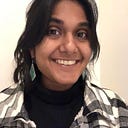Books
We Need More Stories like “Another Appalachia”
A 165-page memoir made me feel more seen than anything on social media.
Being Indian-American was 80% of my personality.
Growing up in a place where most people don’t look like you, that part of your identity is magnified (for better or for worse). Fixating on differences is natural.
Imagine my excitement — then subsequent disappointment — when I saw other South-Asian Americans sharing their stories, but I didn’t quite relate to any of them. Until I read Neema Avashia’s book.
A first-gen, queer, Indian-American growing up in the Southern US
My interest was already piqued by the synopsis. While Avashia lives in Boston now, she spent her formative years in the American South in a small chemical plant town in West Virginia.
I don’t believe I’m the only Indian-American to grow up in the Southern US, but the diaspora in the US is centered around mid-sized to large cities. If people picture “South Asians in the US,” they’ll imagine places like Atlanta, San Franciso, or New York…not exactly a small town in Tennessee.
And while I’m not Gujurati or queer, Avashia’s collection of essays explores so many of the same thoughts and feelings I’ve had growing up.
Two poignant parts of her book include talking about her mixed feelings regarding the 2016 election and watching how it affected the people she loved that treated her kindly and as family.
Basketball instead of Bharatanatayam
There weren’t any Bharatanatayam classes, an Indian classical dance form, when Avashia was growing up. So her long oiled hair, plaited into a braid, made her stand out on the all-White, all boys basketball team at Cross Lanes Methodist Church coached by Mr. Bradford.
Most school kids remember their first go at team-sports. It’s an opportunity to try new things and make friends. For those of us like Avashia, it gives us a chance to have something in common with others.
“How do you assimilate into the dominant culture when your own culture is so invisible to the majority? My small group of Indian peers and I answer this question in different ways.” — Neema Avashia, ‘Another Appalachia’
In her own words, basketball was a “way into a world where [she] otherwise don’t seem to belong.” For some time I wondered if my love and involvement with marching was just a way for me to “assimilate,” until I realized I had a genuine appreciation for the activity even after high school. The “belonging” aspect was a plus.
She even gives examples of how her other Indian peers dealt with this question:
- one spoke with an exaggerated twang, drank heavily, and loudly voted Republican
- others picked up golf or tennis like some of their wealthier classmates in the area
The bonds shared activities can provide are still important. Even if they’re not steeped in cultural sameness, Avashia still has great memories of her time in basketball and allowing herself to connect with others via the sport.
“I am wildly, freely American in a way I can never recapture outside of Mr. Bradford’s presence.” — Neema Avashia
Political Opponents and Dinner-Table Guests
West Virginia turned 80% red in the 2016, despite being blue for as long as Avashia remembered.
The Bradford’s were not only friendly neighbors, but guideposts to Avashia’s immigrant parents of assimilating to West Virginian culture. Her father and Mr. Bradford worked together, and their bond deepened with age — Mrs. Bradford cooking side-dishes without meat, and Mr. Bradford repairing any kitchen appliance that went out of order.
So when the hateful Facebook posts came, Avashia was understandably unnerved.
Mr. B’s latest post was an image about immigration, reading “Heaven has a Wall and strict immigration policies. Hell has open borders. Let that sink in.”
The palpable resignation in [my mom’s] response made me even sadder. “‘What can we do, Neema? It’s the same thing with so many people from West Virginia. The only thing we can do is not talk politics.’”
The Southern US often gets reduced to a hotbed of racism, and though Avashia grapples with this she hesitates to simply double-down on the stereotype. Is it possible, actually, to have dinner with people you disagree with politically?
“I am the child of immigrants. My parents are the immigrants themselves. If Mr. B’s Facebook posts feel like arrows to me, it would seem they are daggers for my parents. Daggers they ignore because of the debt of gratitude they feel; because of the heavy burden that accompanies four-and-a-half decades of love.”
There were many people who loved her and her family and treated her with kindness. So the confusion is understandable. Was that kindness genuine? How is it possible to repeat political rhetoric one moment, and then sit at a dinner table across people belonging to a group you just disparaged? Was the kindness not genuine, or were the political beliefs not genuine?
“My sister, presumably, was an ‘anchor baby” at birth, born to parents who were not yet citizens. Does he think of her when he reposts the hatred spewed by Russian bots and Proud Boys? Does he know and dissociate?”
Much Needed Nuance (and Representation!)
I know I’m not the only Indian-American ever to live in Appalachia. But I’d be lying if I said this book wasn’t a breath of fresh air. Oftentimes I wonder what I would’ve been like had I grown up in a tight-knit diaspora community. Would I have a more solid sense of identity, or would I follow the same cycles of repeating behaviors and reducing them down to “culture” without further questioning or appreciating them?
But after reading Avashia’s story, I feel less alone. And more importantly, feel like I’ll turn out alright.
